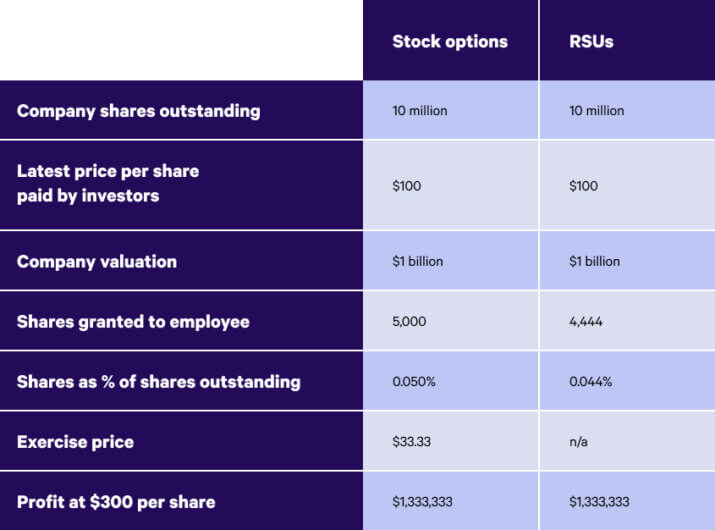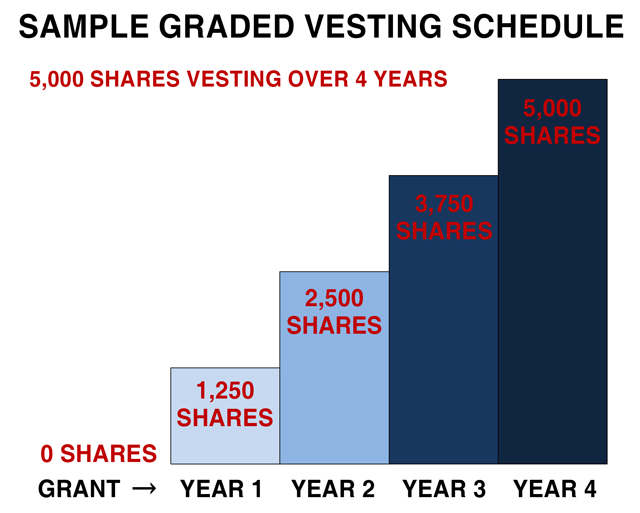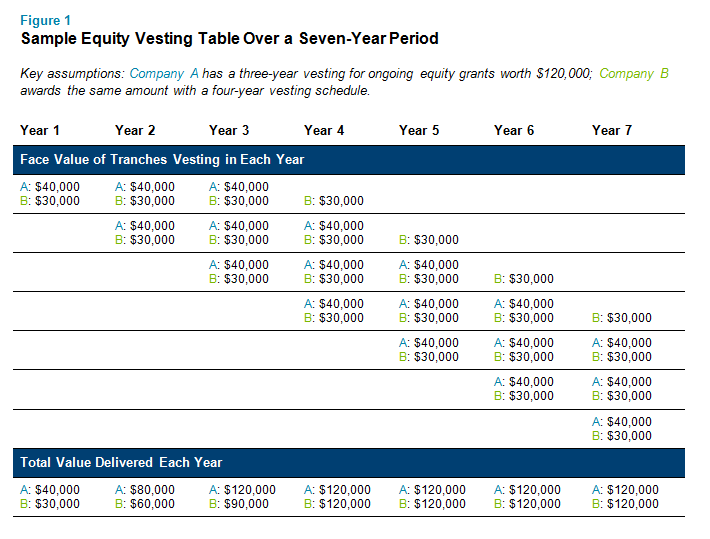
Beyond the Paycheck: Navigating the Tax Complexities of Equity Compensation for Long-Term Financial Health
For many professionals, particularly in the tech and startup sectors, equity compensation represents more than just a benefit—it’s a golden ticket, a potential pathway to significant wealth creation. This form of payment, which grants employees a stake in the company’s success, can transform one’s financial landscape far beyond what a salary alone could achieve. However, this potential is tethered to a web of complex tax regulations and strategic decisions. Without a clear understanding and a robust strategy, a promising windfall can quickly become a tax nightmare, eroding value and causing immense stress. Effective Financial Planning is not just about saving and investing; it’s about proactively managing all components of your wealth.
Navigating the world of stock options and restricted stock units requires more than just optimism about your company’s future. It demands a deep dive into the nuances of tax law, an honest assessment of personal risk tolerance, and a clear vision for your long-term goals. This article serves as a comprehensive guide to demystifying equity compensation. We will break down the most common types, illuminate their distinct tax implications, and provide actionable strategies to integrate this powerful asset into your broader financial life. By mastering these concepts, you can move from being a passive recipient of equity to an active architect of your financial future, ensuring your hard work translates into tangible, lasting wealth.
The Golden Handcuffs: An Overview of Equity Compensation
Equity compensation is a powerful tool used by companies to attract, motivate, and retain top talent. By giving employees ownership in the business, it aligns their interests with those of shareholders, fostering a culture of shared success. However, before you can strategize, you must understand the fundamental mechanics and, most importantly, the tax triggers that define this unique asset class. A lack of knowledge here can lead to costly mistakes that undermine your Personal Development and financial goals.
What is Equity Compensation?
At its core, equity compensation is a non-cash payment that gives you a stake in the company. This can come in several forms, but the most common are stock options and restricted stock units (RSUs). Stock options give you the right—but not the obligation—to purchase a set number of company shares at a predetermined price (the “strike price”) after a certain period. RSUs, on the other hand, are a promise to grant you shares at a future date, typically after a vesting period, without you having to purchase them. The goal for the employee is for the company’s stock value to increase over time, making their stake more valuable. This potential for high returns is a frequent topic in Investment News, but the risks are just as real.
Why Taxation is the Crucial Hurdle
Unlike a regular salary, where taxes are straightforwardly withheld, equity compensation involves multiple taxable events. The moment you are taxed, and how you are taxed, depends entirely on the type of equity you have and the actions you take. There are four key moments in the lifecycle of equity: the grant (when it’s promised), vesting (when you earn the right to it), exercise (when you purchase the stock, for options), and sale (when you sell the stock). Each of these can trigger a tax liability, often involving two different types of tax: ordinary income tax (the same high rates as your salary) and capital gains tax (which is typically lower, especially for long-term holdings). Misunderstanding these triggers is the single biggest pitfall in managing equity.
The Core Components: A Glossary
- Grant Date: The day the company officially gives you the options or RSUs.
- Vesting Schedule: The timeline over which you earn full rights to your equity. A common schedule is a four-year vest with a one-year “cliff,” meaning you get 25% of your grant after the first year, and the rest vests monthly or quarterly thereafter.
- Strike Price (or Exercise Price): The fixed price at which you can purchase a share of stock with a stock option.
- Fair Market Value (FMV): The current price of the stock on the open market.
- Bargain Element: For stock options, this is the difference between the FMV at the time of exercise and your strike price. This spread is often where the most significant tax liability lies.
A Tale of Two Taxes: Breaking Down Common Equity Types
The strategic decisions you make depend almost entirely on the type of equity you hold. The three most prevalent forms—Non-Qualified Stock Options (NSOs), Incentive Stock Options (ISOs), and Restricted Stock Units (RSUs)—each have a unique tax profile. Understanding these differences is as crucial to your financial Health & Wellness as a proper diet is to your physical health.

Non-Qualified Stock Options (NSOs)
NSOs are the most straightforward type of stock option. Their tax treatment is simple but can result in a high tax bill.
- Tax at Exercise: When you exercise your NSOs, the “bargain element” (the spread between the FMV and your strike price) is taxed as ordinary income. Your employer will report this on your W-2, and it’s subject to federal, state, and payroll taxes (Social Security and Medicare).
- Tax at Sale: After exercising, you own the shares. Your cost basis is the FMV on the day you exercised. When you sell, any appreciation above that basis is taxed as a capital gain—short-term if held for one year or less, and long-term if held for more than a year.
Example: Sarah exercises 1,000 NSOs with a strike price of $5 when the stock’s FMV is $55. Her bargain element is ($55 – $5) * 1,000 = $50,000. This $50,000 is immediately taxed as ordinary income. She holds the shares for 18 months and sells them at $75. Her long-term capital gain is ($75 – $55) * 1,000 = $20,000.
Incentive Stock Options (ISOs)
ISOs offer a significant tax advantage but come with complex rules, including the dreaded Alternative Minimum Tax (AMT).
- Tax at Exercise: Here’s the key benefit: when you exercise ISOs and hold the shares, there is no ordinary income tax due at that time. However, the bargain element is considered an “adjustment item” for the AMT calculation. If you exercise a large number of ISOs, it can trigger a substantial AMT liability, requiring careful planning.
- Tax at Sale: To get the best tax treatment (a “qualifying disposition”), you must hold the shares for at least two years from the grant date and one year from the exercise date. If you meet this requirement, the entire gain (sale price minus strike price) is taxed as a long-term capital gain. If you don’t, it becomes a “disqualifying disposition,” and the tax treatment reverts to being similar to an NSO.
Example: If Sarah’s options were ISOs, she would owe no ordinary income tax on the $50,000 bargain element at exercise. However, that $50,000 would be added to her income for AMT purposes. If she holds the shares for the required period and sells at $75, her entire gain of ($75 – $5) * 1,000 = $70,000 is taxed as a long-term capital gain.
Restricted Stock Units (RSUs)
RSUs have become increasingly popular due to their simplicity. They are less risky than options because they are worth something as long as the stock price is above zero.
- Tax at Vesting: There is no tax event when RSUs are granted. The taxable event occurs when they vest. At that point, the full market value of the shares is taxed as ordinary income, just like a cash bonus. Most companies will automatically withhold a portion of the shares to cover the estimated taxes.
- Tax at Sale: Once the shares are vested and in your possession, your cost basis is the FMV on the vesting date. Any subsequent gain or loss is treated as a capital gain or loss upon sale.
Example: David has 1,000 RSUs that vest when the stock price is $55. He immediately has $55,000 of ordinary income. His company withholds 300 shares (worth $16,500) for taxes, and he receives the remaining 700 shares. He sells them two years later at $75, realizing a long-term capital gain of ($75 – $55) * 700 = $14,000.
Building Your Blueprint: Integrating Equity into Your Financial Plan
Understanding the tax mechanics is only the first step. The real goal is to transform that “on-paper” wealth into fuel for your life goals. This requires a strategic approach that balances risk, diversification, and personal objectives, whether that’s planning a major Home Improvement project, achieving a better Work-Life Balance, or simply building a secure future.
Concentration Risk: The Danger of a Single Basket

The single greatest risk in managing equity compensation is concentration. It’s natural to be bullish on your company, but having a significant portion of your net worth tied up in a single stock is a high-stakes gamble. Market volatility, industry disruption, or company-specific issues can erase wealth overnight. A core tenet of sound Financial Planning is diversification. Creating a systematic plan to sell a portion of your company stock over time and reinvest the proceeds into a diversified portfolio (like index funds or ETFs) is crucial for long-term stability. This financial discipline promotes good Mental Health by reducing the stress associated with market fluctuations.
Creating an Exercise and Selling Strategy
Your strategy should be deliberate, not emotional. Consider these approaches:
- Sell to Cover (for RSUs): When RSUs vest, most people allow their company to withhold shares for taxes and then hold the rest. A better strategy for diversification is often to sell the remaining shares immediately and reinvest the cash. You’ve already paid the ordinary income tax, so the only immediate tax from selling is on any small gain between vesting and selling.
- Exercise-and-Sell (for NSOs): A common strategy is to exercise NSOs and immediately sell the shares. This eliminates stock-specific risk, covers the tax bill from the proceeds, and leaves you with the remaining cash to diversify.
- Exercise-and-Hold (for ISOs): To get the long-term capital gains treatment, you must hold ISOs after exercise. This requires having enough cash on hand to pay the strike price and, potentially, a large AMT bill. This is a higher-risk, higher-reward strategy that should be undertaken with extreme care and professional guidance.
This kind of strategic thinking is akin to Meal Planning for your finances; it requires foresight and preparation to achieve a healthy outcome.
Aligning Equity with Life Goals
Your equity is a tool. What are you building with it? Connect your vesting schedule and exercise strategy to tangible goals. Are you saving for a down payment on a home where you can explore Interior Design ideas? Funding your children’s education? Or perhaps building a “freedom fund” that allows you to pursue a passion, like starting a small business or dedicating more time to Volunteering and Social Impact work. Mapping your equity to these goals makes the complex decisions more meaningful and helps you stay the course.

Navigating the Maze: Best Practices and Common Pitfalls
Successfully managing equity compensation is an ongoing process that requires diligence and foresight. Adopting best practices and being aware of common mistakes can make the difference between financial success and a story of missed opportunity. Think of it as a form of Sustainable Living for your portfolio—making smart choices now to ensure long-term health.
Best Practices for Success
- Model Every Scenario: Don’t guess. Use a spreadsheet to model the financial outcomes of exercising and selling at different stock prices. Calculate the estimated ordinary income tax, capital gains tax, and potential AMT. This is not a simple DIY Project; the numbers can be complex.
- Create a Tax Fund: From the moment your equity becomes valuable, start setting aside cash for the eventual tax bill. A high-yield savings account is a great place to park this money. This simple Budget Tip can prevent a cash-flow crisis when taxes are due.
- Consult Professionals: The stakes are too high to go it alone. A Certified Public Accountant (CPA) who specializes in equity compensation can provide critical tax advice, while a Certified Financial Planner (CFP®) can help you integrate your equity into a holistic financial plan.
- Read Your Documents: Understand the specifics of your grant agreement, including the vesting schedule, expiration date (especially post-employment), and any company-specific rules. Good Organization Tips, like setting calendar reminders for these dates, are invaluable.
Common Pitfalls to Avoid
- The AMT Trap: This is the number one pitfall for ISO holders. Exercising a large number of options without modeling the AMT can lead to a surprise tax bill in the tens or even hundreds of thousands of dollars, often due before you’ve sold any stock to pay it.
- Letting Options Expire Worthless: When you leave a company, you typically have a short window (often 90 days) to exercise your vested options. Forgetting or failing to plan for this can mean forfeiting years of accumulated value.
- Emotional Attachment: Holding onto company stock out of loyalty or greed, even when it violates the principles of diversification, is a behavioral finance trap. This can lead to immense Stress Management challenges if the stock price falls.
Conclusion: Architecting Your Financial Future
Equity compensation is a uniquely powerful engine for wealth creation, but it comes with a complex instruction manual. Its true value is not unlocked on the grant date, but through a series of deliberate, informed decisions made over many years. By moving beyond the surface-level excitement and engaging with the critical details of taxation and strategy, you can take control of your financial destiny.
The journey requires you to understand the distinct personalities of NSOs, ISOs, and RSUs, to relentlessly model the tax consequences of your actions, and to combat the emotional biases that can lead to poor choices. Most importantly, it demands that you integrate this asset into a holistic Financial Planning framework aligned with your most important life goals. By embracing this challenge with diligence and professional guidance, you can ensure your equity compensation becomes a cornerstone of a secure, prosperous, and fulfilling life.
You may also like
Archives
- February 2026
- January 2026
- December 2025
- November 2025
- October 2025
- September 2025
- August 2025
- July 2025
- June 2025
- May 2025
- April 2025
- March 2025
- February 2025
- January 2024
- October 2023
- September 2023
- August 2023
- July 2023
- June 2023
- May 2023
- April 2023
- March 2023
- February 2023
- January 2023
- December 2022
- November 2022
- October 2022
- September 2022
- August 2022
- June 2022
- May 2022
- April 2022
- March 2022
- January 2022
- December 2021
- November 2021
- October 2021
- August 2021
- November 2020
- July 2020
- May 2020
- April 2020
- March 2020
- August 2018
- July 2018
- June 2018
- April 2018
- March 2018
Categories
- Aftercare Procedures
- Age Groups
- AI/ML
- Alternative Medicine
- Ambient Computing
- Animal Health
- Animal Husbandry
- Animals
- Anti-Aging
- Architectural Design
- Art And Technology
- Auditory Science
- Augmented Reality
- Automation
- Babies
- Baby
- Beauty & Skincare
- Beauty Industry
- Biohacking
- Biomechanics
- Book Reviews
- Breastfeeding
- Budgeting
- Budgeting Strategies
- Business
- Cardiovascular Health
- Career Advice
- Career Development
- Career Growth
- Cats
- Chess
- Chronobeauty
- Circular Economy
- Civic Technology
- Cleaning Tips
- Cloud Computing
- Cognitive Health
- Cognitive Performance
- Cognitive Science
- Community
- Community Building
- Community Engagement
- Community Living
- Computer Vision
- Consumer Guides
- Consumer Trends
- Container Gardening
- Content Analysis
- Content Non-Technical
- Content Strategy
- Cooking Techniques
- Cosmetic Chemistry
- Cultural Events
- Cycling
- Data Analysis
- Data Engineering
- Data Governance
- Data Science
- Database
- Design Psychology
- Design Trends
- Developer Productivity
- Diet
- Diet
- Diet And Nutrition
- Digital Identity
- Digital Media
- Digital Wellbeing
- DIY
- DIY Projects
- Dogs
- Engineering Culture
- Entertainment News
- Environmental Impact
- Environmental Science
- Equity Compensation
- Ethical AI
- Exercise
- Exercise Science
- Exercise Technique
- Exotic Pets
- Fall Gardening
- Family
- Family Health
- Family Life
- Fashion Business
- Fashion Industry
- Fashion News
- Fashion Tech
- Financial Analysis
- Financial Optimization
- Financial Planning
- Flooring Maintenance
- Food
- Food Psychology
- Food Safety
- Food Science
- Food Tech
- Functional Fitness
- Functional Training
- Future Of Work
- Garden Care
- Garden Maintenance
- Gardening Tips
- Geospatial Data
- Gig Economy
- Greece
- Greek
- Greek Food
- Green Technology
- Gymnastics
- Hardware Engineering
- Health
- Health And Wellness
- Health Informatics
- Health Science
- Health Tech
- Health Technology
- Healthcare
- Healthcare Management
- Healthy Eating
- Healthy Recipes
- Holistic Health
- Holistic Wellness
- Home & Living
- Home Decor
- Home Financing
- Home Health
- Home Improvement
- Home Maintenance
- Home Organization
- Home Styling
- Horticulture
- Household Chemistry
- Identity Management
- Indoor Gardening
- Industrial Design
- Industry Analysis
- Infant Nutrition
- Infrastructure Management
- Ingredient Deep Dive
- Integrative Health
- Integrative Medicine
- Interior Design
- Internet of Things
- Internet of Things (IoT)
- Invalid Request
- Investment Strategies
- Investment Strategy
- IoT
- Kids
- Leadership Development
- Learning Strategies
- Lifestyle
- Lifestyle Brands
- Lifestyle News
- Lifestyle Optimization
- Literary Criticism
- Literature
- Logistics Management
- Machine Learning
- Material Science
- Materials Science
- Meal Planning
- Media Analysis
- Meditation
- Mental Health
- Mental Performance
- Mental Wellness
- Miami
- Miami Food
- Mind And Body
- Minimalism
- Mobile Development
- Neuroscience
- No Applicable Categories
- Nursing
- Nutrition
- Nutrition News
- Open Source
- Operating Systems
- Operational Resilience
- Opinion
- Organization Tips
- Outdoor Living
- Over 40
- Over 50
- Over 60
- Parenting
- Parenting
- Parenting Strategies
- Performance
- Performance Optimization
- Personal Development
- Personal Finance
- Personal Growth
- Personal Productivity
- Pet Care
- Pet Safety
- Philosophy
- Plant Care
- Politics
- Product Formulation
- Productivity
- Productivity Engineering
- Protein
- Psychology
- Psychology of Space
- Quantified Self
- Reading Culture
- Real Estate Investment
- Recipes
- Regulatory Compliance
- Remote Work
- Renovation Planning
- Resource Management
- Respiratory Health
- Responsible Pet Ownership
- Retail Strategy
- Retail Technology
- Robotics
- Science
- Seafood
- Seasonal Gardening
- Security
- Sedentary Health
- Self-Care
- Skincare Science
- Skincare Trends
- Sleep
- Sleep Health
- Smart Home
- Smoothies
- Social Impact
- Soft Skills
- Soil Health
- Spatial Computing
- Spatial Design
- Stress Management
- Supplements
- Sustainability
- Sustainability Science
- Sustainable Engineering
- Sustainable Fashion
- Systems Engineering
- Tax Optimization
- Tax Strategy
- Tech Investment
- Technical Writing
- Testing
- Travel
- Travel News
- Travel Safety
- Travel Tips
- Trend Analysis
- Tropical Plants
- Uncategorized
- Urban Gardening
- Urban Planning
- User Experience
- Veggie
- Vietnam
- Virtual Events
- Volunteering
- Wealth Management
- Wearable Technology
- Wellness
- Wellness Technology
- Winter Gardening
- Work-Life Balance
- Workplace Culture
- Workspace Setup
- World
- Writing
- Writing Skills
- Year In Review
- Yoga
- Yoga News
- Zero Waste




Leave a Reply